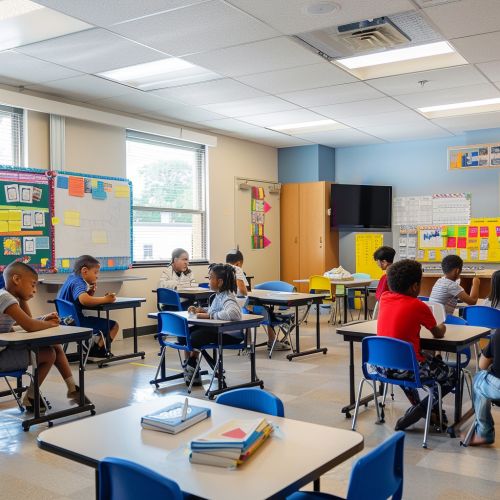Robert A. Bjork
Early Life and Education
Robert A. Bjork was born on April 27, 1939, in Minneapolis, Minnesota. He grew up in a family that valued education and intellectual curiosity. Bjork attended the University of Minnesota, where he earned his Bachelor of Arts degree in 1961. He then pursued graduate studies at Stanford University, where he received his Ph.D. in Psychology in 1966 under the mentorship of William K. Estes, a prominent figure in the field of mathematical psychology.
Academic Career
Early Research
Bjork's early research focused on the mechanisms of human memory and learning. His work in the 1960s and 1970s contributed significantly to the understanding of memory consolidation, a process by which short-term memories are transformed into long-term ones. Bjork's research demonstrated that the consolidation process is not instantaneous but occurs over time, and that various factors, such as sleep and interference, can influence it.
Contributions to Cognitive Psychology
Bjork is perhaps best known for his work on the testing effect and desirable difficulties. The testing effect refers to the phenomenon where retrieving information from memory enhances long-term retention more effectively than simply re-studying the information. Bjork's research showed that frequent testing, even without additional study, can significantly improve memory retention.
Desirable difficulties, a term coined by Bjork, refers to learning conditions that are challenging but ultimately beneficial for long-term retention and transfer of knowledge. These difficulties include spaced repetition, interleaved practice, and varied practice. Bjork's work in this area has had a profound impact on educational practices and instructional design.
Interference Theory
Bjork has also made significant contributions to the understanding of interference theory, which posits that forgetting occurs because new information interferes with the retrieval of previously learned information. His research has explored how different types of interference, such as proactive and retroactive interference, affect memory performance.
Professional Positions and Honors
Bjork has held numerous academic positions throughout his career. He began as an Assistant Professor at the University of Michigan in 1966 and later moved to the University of California, Los Angeles (UCLA) in 1974, where he has been a faculty member ever since. At UCLA, he served as the Chair of the Psychology Department from 2003 to 2006.
Bjork has received numerous honors and awards for his contributions to psychology. He is a Fellow of the American Psychological Association (APA) and the Association for Psychological Science (APS). In 2016, he was awarded the APS William James Fellow Award, one of the highest honors in the field, for his lifetime of significant intellectual contributions to the basic science of psychology.
Research Methodologies
Bjork's research methodologies have been diverse, employing both experimental and theoretical approaches. He has utilized a variety of experimental paradigms to investigate memory processes, including free recall, cued recall, and recognition tasks. His theoretical work has often focused on developing models to explain the underlying mechanisms of memory and learning.
Experimental Paradigms
One of Bjork's notable experimental paradigms is the spacing effect, which examines how the distribution of study sessions over time affects memory retention. His research has shown that spaced repetition, where study sessions are spread out over time, leads to better long-term retention compared to massed practice, where study sessions are grouped together.
Another key paradigm is the interleaving effect, which involves mixing different topics or types of problems within a single study session. Bjork's research has demonstrated that interleaved practice, although more challenging, leads to better retention and transfer of knowledge compared to blocked practice, where similar problems are grouped together.
Theoretical Models
Bjork has developed several theoretical models to explain memory phenomena. One of his influential models is the New Theory of Disuse, which posits that memory strength is determined by both storage strength (how well information is encoded) and retrieval strength (how easily information can be accessed). According to this model, retrieval practice enhances retrieval strength, making it easier to access information in the future.
Impact on Education
Bjork's research has had a significant impact on educational practices and instructional design. His findings on the testing effect and desirable difficulties have led to the development of evidence-based teaching strategies that promote long-term retention and transfer of knowledge.
Evidence-Based Teaching Strategies
One of the key strategies derived from Bjork's research is the use of frequent low-stakes testing, also known as formative assessment. This approach involves regularly testing students on the material they are learning, which not only provides feedback but also enhances memory retention through the testing effect.
Another important strategy is the implementation of spaced repetition in study schedules. By spreading out study sessions over time, students can improve their long-term retention of the material. This approach contrasts with cramming, which may lead to short-term gains but is less effective for long-term learning.
Interleaved practice is another evidence-based strategy that has been influenced by Bjork's research. By mixing different types of problems or topics within a single study session, students can improve their ability to transfer knowledge to new contexts and enhance their problem-solving skills.
Legacy and Influence
Robert A. Bjork's contributions to the field of cognitive psychology and education have left a lasting legacy. His research has not only advanced the scientific understanding of memory and learning but has also influenced educational practices and policies.
Influence on Cognitive Psychology
Bjork's work has been widely cited and has inspired numerous researchers in the field of cognitive psychology. His theories and experimental findings have provided a foundation for further investigations into the mechanisms of memory and learning. Researchers continue to build on his work, exploring new ways to enhance memory retention and improve educational outcomes.
Influence on Educational Practices
Bjork's research has had a direct impact on educational practices, particularly in the areas of instructional design and assessment. Educators and instructional designers have incorporated his findings into their teaching methods, leading to more effective and evidence-based approaches to education.


See Also
- Memory Consolidation
- Testing Effect
- Desirable Difficulties
- Interference Theory
- Spacing Effect
- Interleaving Effect
- Formative Assessment
